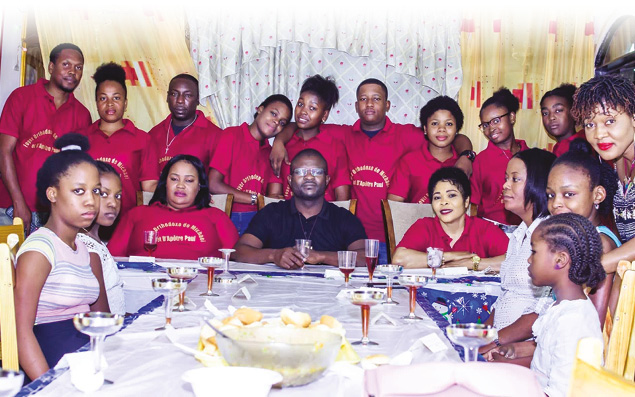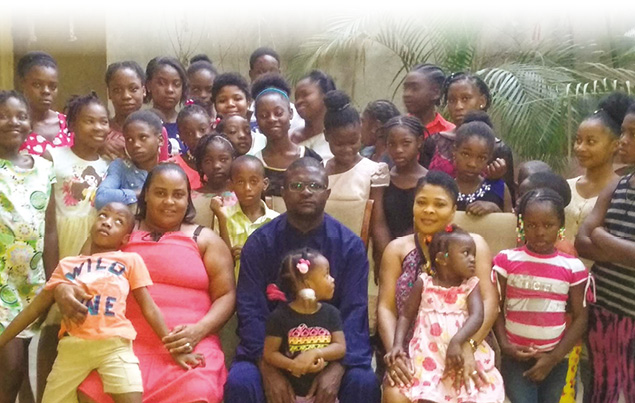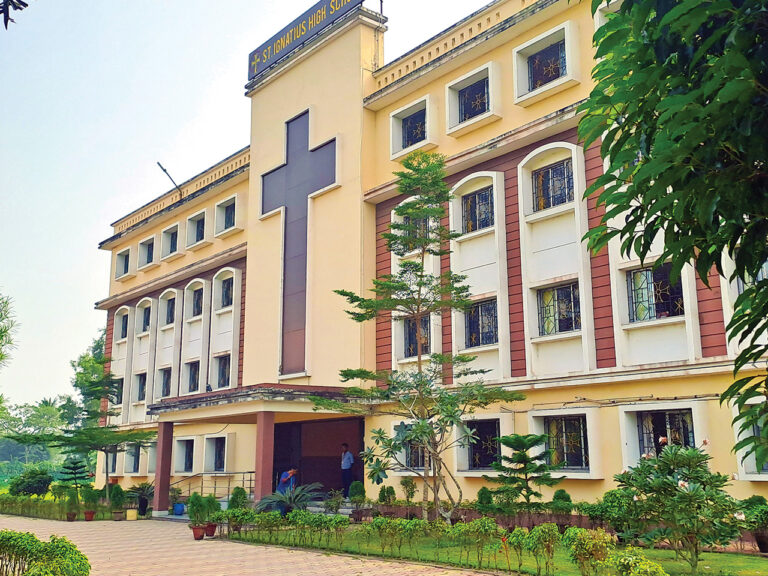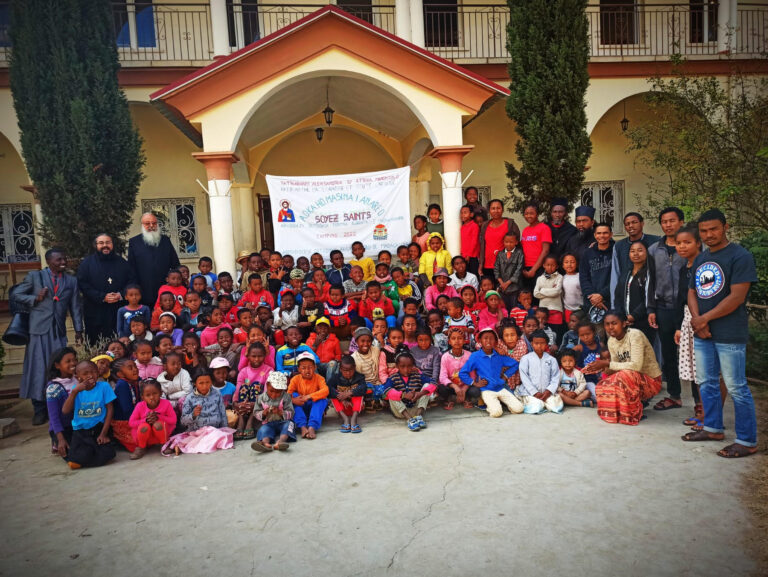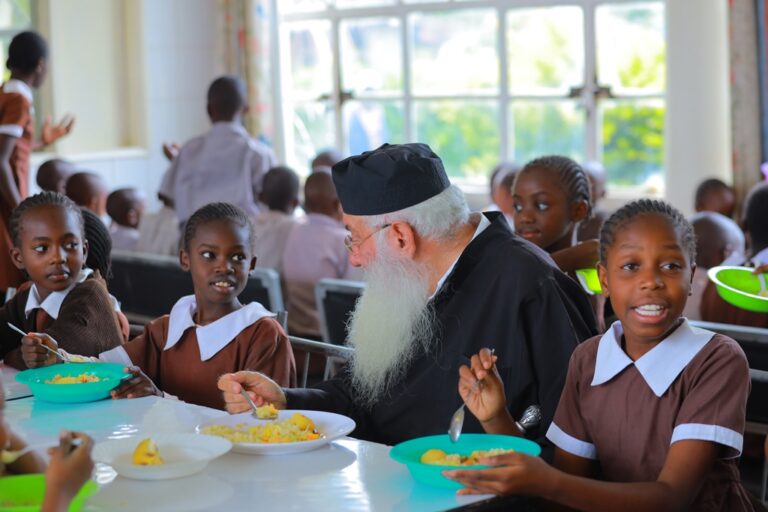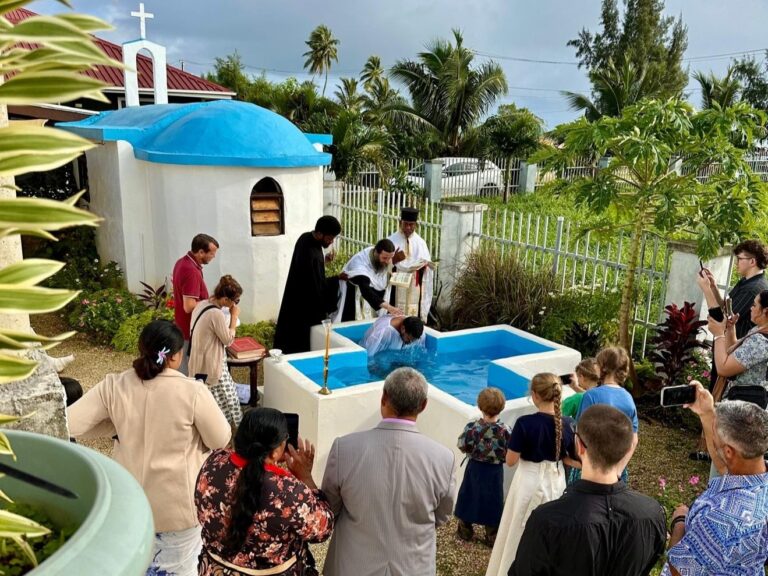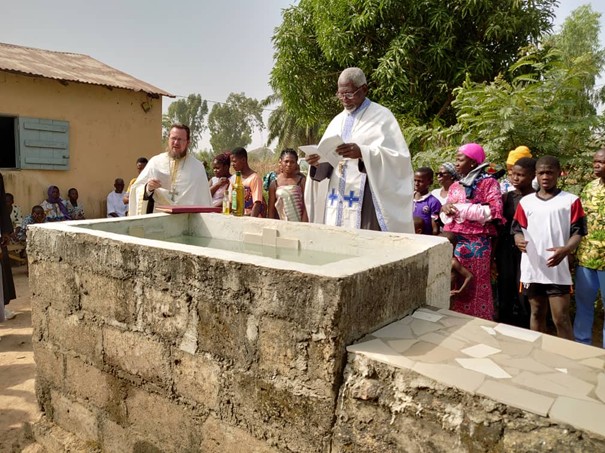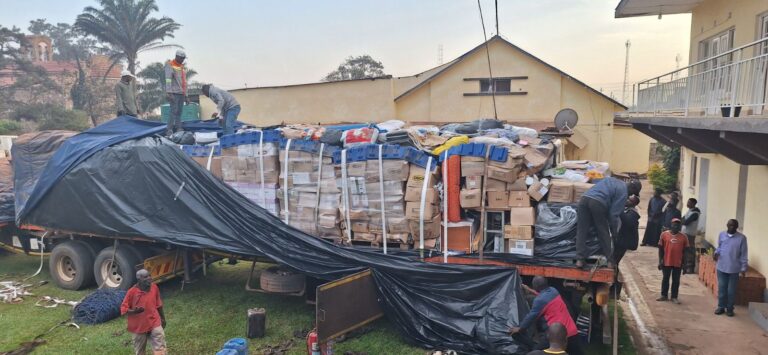Light In The Ruins of Haiti
My name is Fr. Paul Petit Homme and I am from Haiti. About 25 years ago I decided to come to Thessaloniki with the blessing of His Eminence Metropolitan Athenagoras of Mexico and Central America, who helped us realize our purpose and become missionaries. I learned the language and studied for three years at the Higher Ecclesiastical School. After I had finished my studies, he ordained us. I became a deacon in Ptolemaida, served at St. George Church in Panorama for a year and was ordained an elder. Then I got my degree and went back to Haiti for Mission work.
Haiti was the first country to recognize Greece as an independent state. It is located in the Caribbean, near Jamaica, on the same island as St. Dominic, opposite Cuba. It has about 11 million inhabitants.
Orthodoxy is one of the last religious denominations to appear in Haiti. In terms of numbers, we are the smallest Church. We started in 1986. There is a lot of political and economic uncertainty in the country. In 2010, the country experienced the largest earthquake on record worldwide, followed by typhoons and floods. It is an area affected by natural disasters, which exacerbate the climate of unrest and insecurity. Criminality is thriving with the formation of armed gangs that carry out kidnappings and other criminal acts. This is why the country does not see much growth and is one of the poorest countries in the world.
I was brought up in a deeply religious roman-catholic family. I was still a small child when I learned from my mother to do my cross and say a prayer before going to sleep. When I went to primary school, it was a school that belonged to a Roman Catholic nunnery. Every Sunday we had to go to Church and sing in the choir. When I finished school, around the age of 13-15, I met a priest, Fr. Michael Graves, who had come from America and had served as a missionary in Haiti. He helped orphaned children, put them in homes and sent them to school. When I met him, he invited me to his house and we became friends, which is how we learned about Orthodoxy. He was the first to bring Orthodoxy to Haiti. He created a school, where he founded the first parish of St. George. He even had a small chapel in his house in honour of St. Nektarios. He catechized me, baptized me, and so I decided to become a priest.
Today we are based in Petion-Ville, located near the capital Port-au-Prince. The capital was destroyed by the historic earthquake and many people migrated to Petion-Ville. Currently we are two native priests of the H. Metropolis of Mexico in Haiti, Fr. Barnabas and I. Fr. Barnavas is active at the Saint John the Forerunner School in Petion-Ville, and has been helping there for many years. The Orthodox believers in Haiti are about 2,500 people. The Primary school hosts about 600 students.
My parish is in the highlands of Petion-Ville. There we gather the children, we catechize them, we help them in every possible way. Sometimes they cannot afford to pay for school and they are thrown out, so they come to us and knock on our door. We help them when we can, because we know the importance of education. However, many times we are unable to help out.
In our country, with poverty prevailing and with the presence of dozens of Christian denominations, one cannot be active in missionary work without simultaneously doing some sort of social work (such as a school, an orphanage, a clinic). Without social service and charity, we cannot move forward. So do Roman Catholics, Protestants and others… When a person tells you that they are hungry, they cannot hear the Gospel. The least you can do is give them a plate of food to eat and then have a conversation on faith. This is the only way we can do something worth the effort, because the crisis is getting deeper and deeper day by day.
All these years, even before I became a clergyman, the support of the Orthodox Missionary Fraternity has given me great joy and courage for the difficult work we are doing in Haiti. I pray that God will lay His hand upon Haiti so that this situation will be corrected and after a few years, life will return to normal.
Fr. Paul Petit Homme
